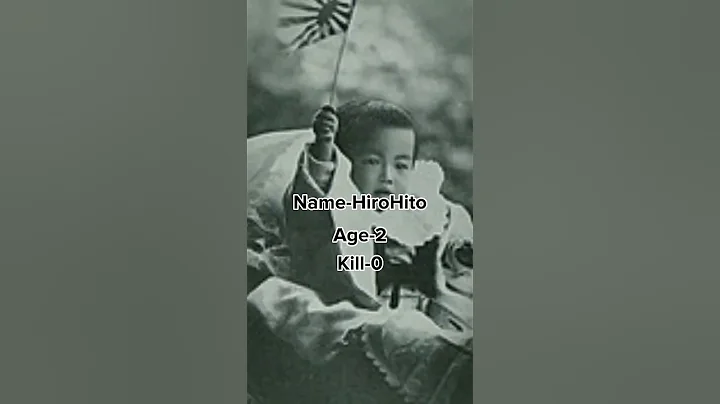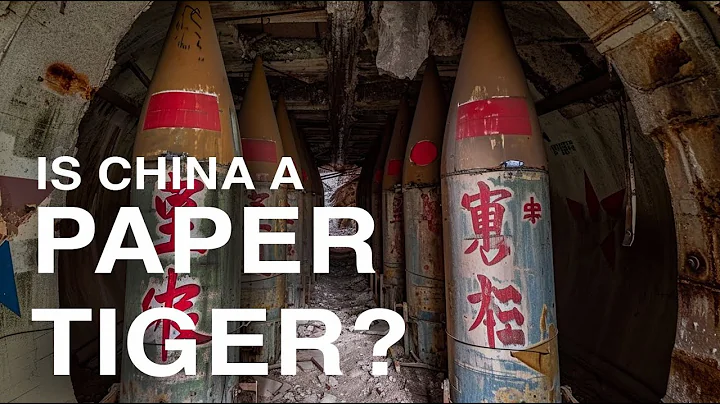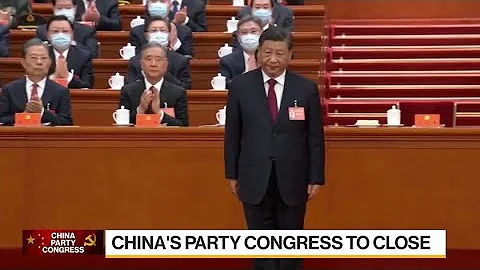"Rereading Historical Records" Season 1, Issue 40
Hello everyone, I am a reader. Follow me and I will take you into a different world of culture and history.
In today’s lecture, I want to talk about Li Guang, a star-crossed general created by Sima Qian.
Li Guang was an important general of the Han Dynasty . He joined the army at a very young age and was still on the front line against the Xiongnu until he was over 60 years old. He had been serving since the Emperor Wen of the Han Dynasty. A veteran of the three dynasties to Emperor Wu of the Han Dynasty .

Li Guang was brave and good at fighting, but no matter in the periods of Emperor Wen and Emperor Jing who focused on peaceful development, or in the period of Emperor Wu of who expanded territories and rewarded military achievements with titles and titles, although Li Guang was famous outside the Great Wall, he fought against the Huns. There are more than seventy games, big and small, but the opportunity to become a prince is always lost by accident. In the same era, many people who were not as talented and virtuous as Li Guang were awarded the honor of being a feudal lord.
In the words of Emperor Wu of the Han Dynasty, Li Guang was a "number of strange" people. Numbers are numbers, and odd numbers are odd numbers and even numbers, which represent individuality. Because ancient China paid great attention to numbers in pairs and believed that "pairs" were auspicious. On the contrary, "odd numbers" meant that a person was unlucky.
Sima Qian grasped this characteristic of Li Guang's life, and unearthed the personality image of a famous general who was unworthy of great achievements but ill-fated. He wrote " Biography of General Li " and directly used "general" for Li Guang. The naming of his biography expresses his respect and regret for Li Guang.
So what kind of person was Li Guang in Sima Qian’s writings? Why was he unable to become a marquis even though he served in the military all his life?
Let us take a look at Li Guang's personality in conjunction with the "Biography of General Li" in "Historical Records".
Both ability and political integrity
In my opinion, among the many famous generals written by Sima Qian, Li Guang is one of the few who can be called a famous general with both ability and political integrity.

Li Guang was an honest official, and all the rewards he received would be distributed to his subordinates. He had been a senior official for more than 40 years, but his family had no money left. During the march, Li Guang's troops often fell into a state of water and food shortage. After finding the water source, Li Guang always puts himself last. As long as there are soldiers who have not drunk the water, Li Guang will not go near the water source. Similarly, after receiving food, Li Guang would not eat as long as there were soldiers who did not receive food. Therefore, Li Guang was deeply loved by the soldiers. In Sima Qian's words, "Xian was happy to die for him." Li Guang's soldiers were all willing to die for him.
But as a general, it is not enough just to have virtue. What is more important is the ability to lead troops in combat. So, was Li Guang a capable general? If his soldiers are the best witnesses to Li Guang's virtue, then in terms of combat capabilities, the enemy's evaluation of Li Guang best illustrates his strength.
The main enemy of Li Guang's life was undoubtedly the Huns. In "The Biography of General Li", you will find that the Huns thought highly of Li Guang. We know that Li Guang has a title that has been passed down for thousands of years called "Flying General ", which often appears in the poetry of later generations. However, this title of "Flying General" was neither claimed by Li Guang himself nor given to him by his subordinates. It was given to him by his enemies, the Huns. The full name is "Flying General of Han".
At that time, Li Guang was stationed in YouBeiping, which is today's Chifeng area of Ningcheng, Inner Mongolia. In the Han Dynasty, this was one of the important northern border counties for defense against the Huns. In order to avoid Li Guang, the Huns did not dare to invade this place for several years.

From the attitude of the Huns, we can see that Li Guang is a very capable general. At the same time, in Li Guang's era, being able to be granted a title was an important symbol of career success. Li Guang attaches great importance to this goal and is determined to win it. But unfortunately, it was precisely on this issue that Li Guang suffered continuous setbacks. Why is
like this? In "Historical Records", Sima Qian wrote an answer, "Shu Qi", which means bad luck.
Bad luck
Looking at Li Guang's career from the perspective of "Shu Qi", we have to admit that this person is indeed unlucky.
Li Guang caught up with Wenjingzhi when he was young and strong. At that time, Emperor Wen of the Han Dynasty was recuperating at home and advocating a peaceful policy externally. Therefore, Li Guang has little room to make achievements. Although Emperor Wen of the Han Dynasty was well aware of Li Guang's ability, he could only say with emotion: "What a pity, you were born at the wrong time!" It's really a piece of cake to have 40,000 households with html and .
It is a pity that not only was Li Guang unable to become a marquis during the period of Emperor Wen, but also during the period of Emperor Wu who used large-scale military force, Li Guang still missed his achievements.
For example, Yuanshuo was in the fifth year, which was the eighteenth year when Emperor Wu of the Han Dynasty ascended the throne. Emperor Wu of the Han Dynasty sent General Wei Qing to attack the Xiongnu. At that time, Wei Qing mobilized a large number of troops from the Han Dynasty and formed an overwhelming advantage over the Xiongnu. Moreover, in this battle, Wei Qing also successfully launched a surprise attack on the Xiongnu, catching the Xiongnu by surprise and achieving a huge victory. Many of the generals who participated in this operation were granted marquis status. It is a pity that Li Guang was responsible for the defense of the Youbeiping area at the time and did not participate in the attack, missing the easiest opportunity to become a prince.

In the second year, Li Guang finally got the opportunity to follow General Wei Qing to conquer the Xiongnu. However, in this battle, Li Guang was the rear general, that is, the commander at the end, equivalent to what we call the general reserve, which was reserved for use in the decisive battle. Unfortunately, because the Huns pursued a war-avoidance strategy, no decisive battle took place. As a result, most of the generals on the front line were granted marquis status based on their military merits because they captured the required number of enemy heads. However, Li Guang's army did not perform meritorious service because they were in the rear.
Two years later, Li Guang finally became the vanguard, leading a force of 4,000 people to serve as bait in front to attract the enemy to a decisive battle. Ten thousand reinforcements were arranged in the rear to provide reinforcements. Unfortunately, although Li Guang successfully attracted 40,000 enemy troops this time, the reinforcements were lost at the critical moment, resulting in Li Guang's army being almost annihilated. In the end, although Li Guang repelled the enemy, he suffered heavy losses. Therefore, Li Guang was sentenced to a balance of merits and demerits, that is, no punishment, but no reward.
Judging from these resumes, Li Guang is indeed unlucky. However, if we dig deeper into this period of history, we will find that Li Guang's "number of oddities" can actually be avoided.
Unexpected talent
In fact, behind Li Guang's "number of oddities", there is a deeper reason hidden, that is, Emperor Wu of the Han Dynasty often had obvious selfishness in employing people. For example, Emperor Wu of the Han Dynasty liked the queen Wei Zifu in the early days, so he vigorously promoted Wei Qing, Wei Zifu's younger brother, and made Wei Qing a general. Wei Qing's nephew Huo Qubing was also promoted exceptionally. Later, Emperor Wu of the Han Dynasty favored Mrs. Li, and reused Mrs. Li's brother Li Guangli.
Needless to say Li Guangli, in "Historical Records", his ability to lead troops in battle was very poor, he lost many battles, and his moral character was obviously not as good as Li Guang's. Later, he defected and surrendered to the Huns. However, such people were still reused by Emperor Wu and were repeatedly given the power to command the army.

In contrast, although Wei Qing and Huo Qubing were promoted through connections, they were at least very capable. Here I especially want to remind you to pay attention to a detail in "Historical Records". Sima Qian said that Li Guang was taciturn on weekdays and focused all his attention on military matters. He also said that Li Guang was "good at riding and archery", which means he was proficient in horsemanship and archery, which meant that he had excellent military qualities.
Interestingly, the same content also appears in the description of Huo Qubing. Huo Qubing is also a person who doesn't like to talk very much, and he also uses the words "good at riding and shooting". This is certainly no coincidence. In my opinion, Sima Qian reminded us through these details that both Li Guang and Huo Qubing were generals with high military talents, and they were even very similar generals.
But the fate of the two people is completely different.
Li Guang has never received good resources, and the troops under his direct command are no more than 10,000 at most. Huo Qubing often led tens of thousands of cavalry across the battlefield, and Emperor Wu of the Han Dynasty also gave special instructions to provide Huo Qubing with the highest level of logistical support. Yuanshou In the four-year Battle of Mobei , Huo Qubing was given the command of 50,000 cavalry, supported by hundreds of thousands of infantry and logistics troops.
Therefore, it is not difficult to see that the fundamental reason for Li Guang's lack of merit is not a lack of ability, but a lack of opportunities, and even more, a lack of resources. And it was Emperor Wu of the Han Dynasty's favoritism that caused all this.
In the fourth year of Yuanshou, Li Guang was appointed as a former general and accompanied the general Wei Qing to Mobei to conquer the Xiongnu. Li Guang was already old at that time, but "die on the battlefield" was the old general's unswerving belief until his death. However, although Emperor Wu of the Han Dynasty appointed Li Guang, he felt that Li Guang was old and unlucky, so he secretly told Wei Qing not to let Li Guang be the vanguard at critical moments.
And Wei Qing also wanted to take care of his good friend Gongsun Ao and let him make atonement for his sins. As a result, Li Guang was replaced from the vanguard position at the last moment. Moreover, in his hurry, Wei Qing, whether intentionally or unintentionally, forgot to arrange a guide for Li Guang's troops, causing Li Guang's troops to get lost and miss the most critical battle.

Afterwards, Wei Qing asked Li Guang about his fault again, so that Li Guang, who had a proud personality, chose to commit suicide angrily. After writing about Li Guang's suicide, Sima Qian added that all the soldiers in Li Guang's army cried bitterly. When the people heard the news, whether they knew him or not, whether they were old or young, they all shed tears for Li Guang. The tragedy of Li Guang's death was pushed to a peak.
You must still remember that Sima Qian was brutally tortured because he spoke uprightly for the defeated general Li Ling. Li Ling is Li Guang's grandson. Therefore, when Sima Qian faced the historical figure Li Guang, he especially had complicated emotions. It was this kind of emotion that allowed Sima Qian to write about Li Guang's life in a rich and colorful way, thus establishing Li Guang's historical status. Li Guang's meritorious deeds made him the most prestigious general in history, although he was not the highest general at the time. Later generations of talented men and warriors whose fate was in vain can often get unique feelings and resonance from Li Guang's deeds.
Wang Wei, a great poet of the Tang Dynasty, wrote "The Journey of a Veteran", which was based on Li Guang. In the famous article "Preface to Prince Teng's Pavilion", Wang Bo, a talented scholar of the Tang Dynasty, also expressed his emotion about "It is difficult for Li Guang to seal the throne". And "Li Guang can't be sealed" also started from here and gradually became a famous allusion, used to refer to those people who are highly capable but have a bad life and are not reused.
Summary
OK, let me summarize the content of this lecture.

In today’s lecture, I talked about the deeds of Air Force General Li Guang. He has both political integrity and talent, and outstanding abilities. Unfortunately, his life has been full of misfortunes, and he always misses his military exploits. But if we look carefully at history, we will find that the tragedy of Li Guang's life was not due to his lack of personal ability, but because he did not enter the small circle of Emperor Wu of the Han Dynasty, so he was never able to get the resources and opportunities that matched his talents. .
Finally, here is another question: "Feng Tang Yi Lao, Li Guang is difficult to seal" has become an allusion we often use. In history, do you know any other characters with similar fates to Li Guang? Please share your views with everyone in the comment area.
welcome to follow, like, comment and forward! See you next time!





















